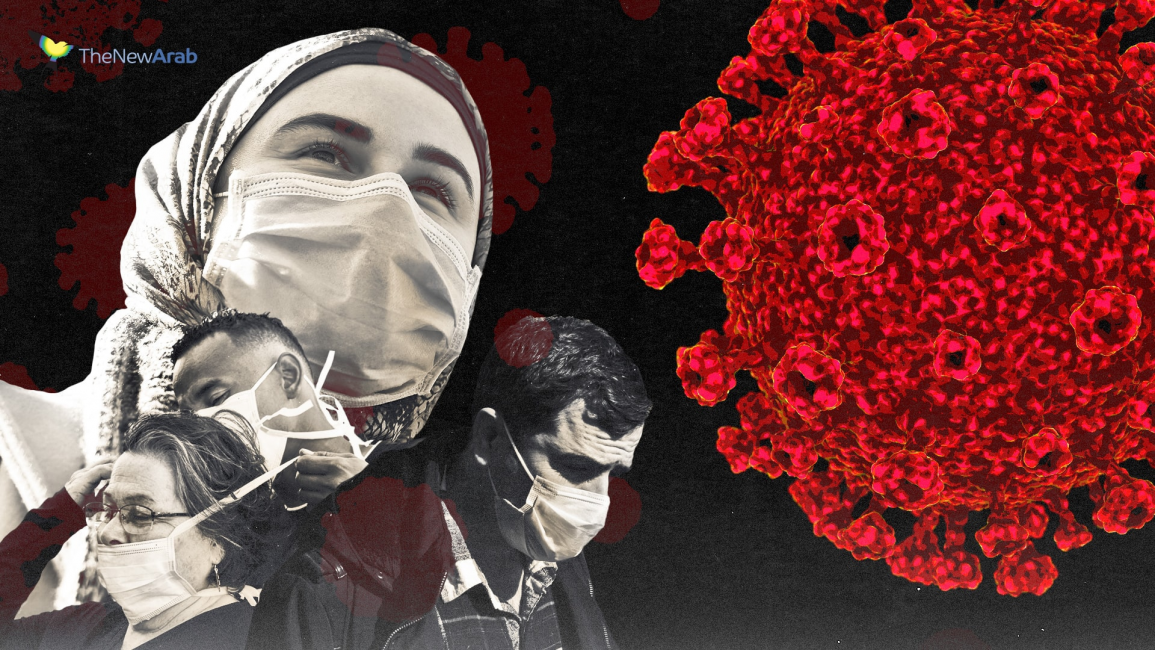Follow us on Facebook, Twitter and Instagram to stay connected
The Middle East at war with coronavirus: Top stories from 11 May
1. Thirteen Lebanese military court soldiers contract coronavirus
At least 13 soldiers from the Lebanese military court have been infected with the novel coronavirus, according to a statement by the army command.
Dozens of judges, lawyers and auditors who have visited the Beirut-based court have been alerted and are being tested for Covid-19, the statement added.
At least 40 lawyers who have attended cases at the court are awaiting examination results on Tuesday, the National Information Agency said.
The Bar Association announced the shuttering of all its buildings on Monday to prepare for sterilisation procedures, while military court judges and army officers take part in testing on Monday, Arabi21 reported.
Read more here
2. Iran closes southwest county after new wave of coronavirus cases
Iranian authorities ordered the lockdown of parts of the southwest of the country after a spike in coronavirus cases, agencies reported on Monday.
The county of Abadan in the oil-rich Khuzestan region has seen a rise in Covid-19 infections, which local authorities have blamed on people not abiding by social distancing rules, Iran's Tasnim agency reported.
|
|
"Because of this the number of corona patients in the province has tripled and the hospitalisation of patients has risen by 60 percent," said Gholamreza Shariati, governor of Khuzestan province.
To tackle this, offices and banks will be closed in the region, while travel restrictions will be imposed - including entry corridors from the north and east of the county, Reuters reported.
Read more here
3. Saudi triples VAT, suspends handouts in coronavirus-led austerity drive
Saudi Arabia's finance minister on Monday said the kingdom will triple its Value Added Tax (VAT) and halt monthly handout payments to citizens in new austerity measures amid record low oil prices and a coronavirus-led economic slump.
The measures, which could stir public resentment with the cost of living rising, come as the petro-state steps up emergency plans to slash government spending to deal with the twin economic blow.
"It has been decided the cost of living allowance will be halted from June 2020 and VAT will be raised from 5 percent to 15 percent from July 1," Finance Minister Mohammed al-Jadaan said in a statement released by the official Saudi Press Agency.
Jadaan insisted the measures were necessary to shore up state finances amid a "sharp decline" in oil revenue as the coronavirus pandemic saps global demand for crude.
Read more here
4. Outrage after video shows Ramadan aid volunteer beating migrant worker in food queue
The video shows dozens of recipients patiently waiting for food during the holy Muslim fasting month of Ramadan when a migrant worker is seen chased by what appears to be a volunteer in uniform.
The volunteer forces the worker to the ground and proceeds to beat him on his face and head with an unidentified object
|
|
Words are then exchanged between the two as the victim holds up his hand in defence. He then stands to walk away, only to receive more lashes from the volunteer.
Read more here
5. Coronvirus fells Syrian minister
Syrian President Bashar Al-Assad replaced the internal trade minister on Monday, as the country's financial crisis worsens with prices of consumer goods increasing and the local currency reaching record lows, as the coronavirus crisis batters the economy.
Syria's economy has been ravaged by nine years of war and western sanctions.
The presidential decree said Homs provincial governor Talal Barrazi will replace Atef Naddaf as Minister of Internal Trade and Consumer Protection. The decree gave no further details other than saying that Barrazi is no longer governor of Homs, Syria’s largest province.
The Syrian pound plummeted to unprecedented levels in recent days reaching 1,485 pounds to the dollar on the black market compared with 47 to the dollar when the conflict began in March 2011.
That sent prices of basic goods soaring and was followed by restrictions imposed to prevent the spread of the coronavirus that limited movement and trade.
Read more here



